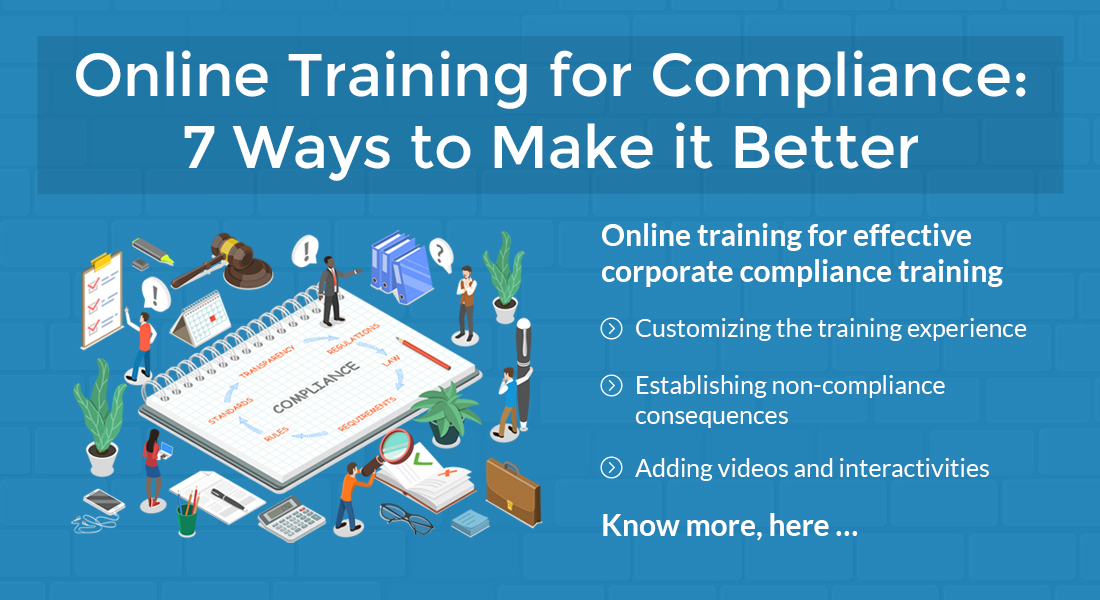5 Smart Strategies for Online Healthcare Training

Continual training plays a major role in the development of healthcare professionals. With the escalating financial pressures on healthcare training, it has become difficult for training managers to justify the time and money spent on training programs. Online healthcare training programs have managed to address this concern of delivering training programs within a specified budget, time, and speed. But have they managed to deliver training content effectively? In order to make online healthcare training programs successful, it is essential that you pay attention to the learning strategies used in the training program. Read on to know about 5 smart strategies that can make a world of difference to your online healthcare training programs.
1. Scenario-based Learning
Medical staff are often required to take critical decisions based on a patient’s condition. Including a scenario-based strategy in your online training program can certainly benefit healthcare professionals by preparing them to deal with situations where they are required to take a decision or solve a problem. Here are the benefits of following a scenario-based strategy in an online healthcare training program:
- Helps workforce understand difficult concepts easily
- Builds an emotional connect with learners
- Promotes critical thinking
- Drives learner engagement by mimicking the real-life work environment
Let’s consider an example where doctors or nurses have to be trained on handling medical emergencies. A medical emergency situation can be presented in the form of a scenario. After going through the scenario, learners are expected to choose the best course of action from a list of options provided. At the end of each scenario, effective feedback can be provided to the learner.
2. Simulation-based Learning
Following a simulation-based training strategy helps learners practice what they have learned. Here’s how a simulation-based strategy helps healthcare professionals:
- Offers a risk-free environment where it is ok to fail
- Enables decision making
- Facilitates easy learning through a visual medium
- Boosts retention as learners remember better by doing rather than rote learning
- Offers instant feedback as you can view the consequences of your actions immediately
An online simulation gives learners a safe environment to fail and learn from their mistakes. For example, a watch-try-do simulation can be used in an online healthcare training program that hones learners’ surgical skills. You could have an online simulation that demonstrates each step in a minor surgical procedure. Trainee surgeons can try these steps online using a guided procedure and then perform these steps in the right order without any guidance. A similar technique could be used to train paramedics on CPR or nurses involved in taking care of patients in the critical care unit.
A study by researchers at John Hopkins Medicine confirms that medical errors are the third leading cause for death in the Unites States. This risk can be mitigated to a large extent by using simulation-based training programs.
3. Storytelling
Storytelling can benefit online healthcare training in the following ways:
- Builds an emotional connect with learners
- Stimulates the brain and aids with retention of training content
- Captures learner attention and improves concentration
A rapid e-learning authoring tool can be used to add interactivities, clickable objects, audio, and images to take your storytelling strategy to the next level. Consider an online compliance training program for the healthcare industry. Compliance training is not always fun, but it can be certainly spiced up with an effective storytelling strategy that captures learner attention.
When the training program makes use of characters, themes, and plot lines, it offers a great way to connect with learners.
4. Case Studies
Online healthcare training is effective when it is emotionally-centered and case studies can be used as an effective strategy to achieve this. Here are the benefits of case studies:
- Highlights real-world applications
- Magnifies the impact of online training by adding an emotional element
- Teaches healthcare workers to humanize their processes
Let us consider a training program that teaches healthcare professionals various approaches to solving an ailment. A case study that explains the condition of a patient and the approach taken by the physician gives learners a real-life take on the situation. Learners can understand how the patient coped with the ailment and the steps taken by the physician to diagnose the problem and provide effective treatment. It can also cover the challenges faced by the healthcare professional while treating the patient.
5. Game-based Learning
Games are usually not associated with a serious topic such as healthcare training. But research has proven that medical professionals prefer game-based learning as compared to traditional lectures.
Here are the benefits that game-based learning brings to online healthcare training:
- Motivates learners to complete training programs
- Makes the learning experience engaging and fun
- Provides effective training reinforcement
For example, a microlearning module in the form of a quiz-based learning game can do wonders for training reinforcement. A game-based learning strategy that makes use of video games, goal-directed challenges, and positive feedback can certainly improve learning outcomes in the field of healthcare training.
Have you tried any of these strategies in your online healthcare training programs? If yes, please make use of the comments section to share your thoughts on how this has helped learners.





